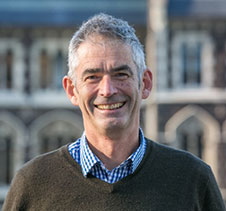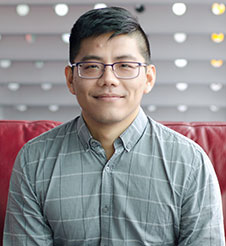 Monday 1 April 2019 12:02pm
Monday 1 April 2019 12:02pm
Professor Parry Guilford
Cancer genetics and biology expert Professor Parry Guilford has received a New Zealand Health Research Council Explorer Grant to further investigate a novel device that could routinely detect early-stage cancer, potentially transforming cancer survival.
Professor Guilford and his team at the University of Otago propose developing an “indwelling device”, a technology that can be inserted into the body and left there for a period of time that will capture significantly more circulating tumour DNA (ctDNA), a new generation of cancer biomarkers.
Professor Guilford explains that ctDNA is a new class of marker with exceptional specificity that has potential application to most cancer types. However, its sensitivity is currently modest for early stage disease due to the small number of ctDNA molecules that can be purified from a standard 8ml blood draw.
“It works well for late-stage disease, but lacks the sensitivity to find cancer at an early stage, when cure by surgery is still possible,” Professor Guilford says.
“We propose to develop an indwelling device that will capture greater than 36 fold more ctDNA over a 30 minute period enabling this technology to routinely detect early-stage cancer,” he says.
“We think it will allow the majority of tumours to be diagnosed while they are still small enough to be cured by surgery.”
Health Research Council Explorer Grants support transformative research ideas that have a good chance of making a revolutionary change to how New Zealanders' health is managed. Professor Guilford is thrilled to receive the grant worth $150,000 over two years.
“We are very excited about the research and are very grateful the HRC's Explorer mechanism for funding ground-breaking ideas was available for us to bid into.”

Dr Xiaolin (Steven) Cui
University of Otago researchers received three of the 15 grants awarded nationally. Dr Sean Coffey from the Dunedin School of Medicine and Dr Xiaolin (Steven) Cui, from the University of Otago, Christchurch, have also secured Explorer Grants each worth $150,000.
Dr Coffey's research has the potential to transform current methods of assessing heart disease. He explains that cardiac ultrasound is currently the most common way to look at and measure heart function. Cardiac MRI is a more expensive and time-consuming test, but gives better images of the heart.
His study aims to develop a method of generating new images from cardiac ultrasound by training artificial intelligence models to produce MRI-like images from standard ultrasound images. If successful, the method would be applicable to any newly acquired cardiac ultrasound and could potentially transform our methods of assessing heart disease.
Dr Cui's research will investigate using a new generation of stem cells to help treat cardiovascular disease and its complications, including heart attacks.
He explains stem cell therapy has the potential to help treat cardiovascular disease however, current limitations with the therapy, such as severe immune rejection or the potential of mutating into cancer cells, makes authorities more cautious to approve clinical trials.
However, his study aims to show that synthetic stem cells, due to their nature can minimise the drawbacks of using living cells but maintain the effectiveness of stem cell therapy, providing a new way of treating cardiovascular disease.
For further information, contact:
Professor Parry Guilford
Centre for Translational Cancer Research
Department of Biochemistry
Email parry.guilford@otago.ac.nz
Dr Steven Cui
University of Otago, Christchurch
Email steven.cui@otago.ac.nz
Liane Topham-Kindley
Senior Communications Adviser
Tel +64 3 479 9065
Mob +64 21 279 9065
Email liane.topham-kindley@otago.ac.nz
FIND an Otago Expert
Use our Media Expertise Database to find an Otago researcher for media comment.